Questionwhat type of cage would you prefer?(medium, large)
and were could i possibally buy them?
-------------------------------------------
The text above is a follow-up to ...
-----Question-----
thanks for replying real quickly chrys.
the sickness started yesterday but shakes seems fine now. but because they are able to hide there sickness its probably still sick.
and the grip thing. its been like that for awhile. my perches are plastic they came wit my cage. the cage is supposed to be for parakeets but the former owner said those perchers and cage was ok. and it is for shakes because shakes is small. and shakes wings are clipped and he has fell a few times but he has horrible grip on my hands and on things too.
and i don't know if he has a leg or feet problem. could his grip be improved?
mahalo, primo
-------------------------------------------
The text above is a follow-up to ...
-----Question-----
Hi my name is primo and I'm in desperate need of help.
My love bird (shakes) is sick at this very moment. i got shakes in July and its really tamed because i got it from a family friend who raises many birds and i was lucky to get it for free. when i received shakes he would shake alot, its grip was very poor, and it didn't like to jump and i was told if i took really good care of it the shaking will go away. the shaking did but not the grip and the fear of jumping.
today it came back. his symptoms are
-ruffled feathers
-discolored poop (its now black)
-shaking
-and very less energetic like shakes was before.
the person who i received shakes from told me to clean its cage right when it poops, and give it fresh water and food alot and to put a heating pack in the back of his cage to keep him warm.
please help me and let me know if this would keep him well. because we have no vet on our small island Lanai.
and it will be very costly to take him and my family to a different island. and if anything elese please give me more expert advice please.
mahalo
primo
-----Answer-----
Mahalo, Primo. Thanks for posting!
For the gripping problem, what type and size perches are you using? Does this bird have any type of leg or feet problem(s)?
Fear of jumping could be the result of a bad incident at some point in the bird's life. Could also be because of the gripping problem (the bird might not want to jump if it can't grip in order to catch itself when it lands). Could also be that perches are not secure in the cage. Could be many things that result in a fear of jumping.
Ruffled feathers, discolored droppings, shaking, etc., are definite signs of illness. Black droppings could actually be blood in the stool or some type of liver or kidney damage/problem. Your bird actually needs to be seen and treated by an avian veterinarian ASAP, particularly since this has been going on for many months now. I cannot diagnose an illness over this website...there's just too much information I need/a need to see the bird in person to get an overall picture, and I'm not an avian veterinarian.
Chrys
-----Answer-----
Hi again, Primo.
One potential problem I see is the plastic perches. I know exactly the perches you are referring to, and these may be part of the problem. Your lovebird needs natural wood perches and you can also use wooden dowel rods. Use different types and sizes of perches for your lovie. Since birds spend 24/7 on their legs/feet, they have to have good and right-sized perches positioned in different ways inside their cage. Excellent feet/leg health is imperative for a bird. A correctly-sized perch is one where the bird's toes fit 1/2 - 3/4 of the way around the perch. If toenails/toes touch around a perch, the perch isn't thick enough.
The cage might also be too small. I realize that lovebirds aren't much bigger than parakeets, but they are still bigger. Your lovie should be able to flap it's wings vigorously when inside it's cage without any part of it's body touching anything inside the cage. In addition, if your bird spends a lot of time inside it's cage, the cage needs to be larger than if your birds spends a lot of time outside it's cage. Bigger is usually better where parrots are concerned.
Sometimes a bird will have a bad day and not feel very well. Sometimes a bird will have a couple of bad days, then go back to being it's normal self again. This might be true with your lovie if s/he's OK today. It still applies though that black droppings could actually be blood in it's stool, but it could also be the result of what your bird is eating. You know your bird better than anyone else does...if you believe s/he is sick, s/he probably is!
His grip might be able to be improved if the reason for the problem is known. This is why it's important for avian veterinarian assistance. If the change in perches doesn't help the gripping problem, and Shakes still acts sickly, you need to get him to an avian vet for medical evaluation and treatment.
Chrys
AnswerHi again, Primo.
Your lovie should be able to flap it's wings vigorously when inside it's cage without any part of it's body touching anything inside the cage. You'll need to decide on which size cage is right based on the type of cages you can find at pet stores, etc., where you live, how much other stuff (perches, dishes, toys, etc.) you place in the cage, etc (I would have no knowledge of this in order to help you determine the right size for your bird). You can also order cages from bird supply houses on the internet or make your own. In a search engine, type "parrot cages" in the search window and many websites will come up. A favorite place of mine to order bird supplies is www.drsfostersmith.com, but there are many places to buy bird cages. You might be able to find one at local garage sales, flea markets, etc.
Chrys

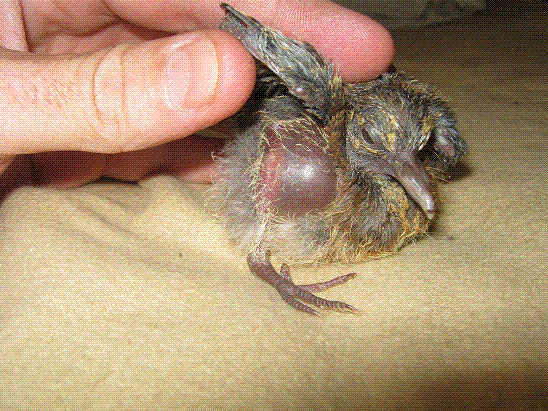 Baby Pigeon
Question
Cosmo
Hi Roger
We picked up a baby pigeon, ap
Baby Pigeon
Question
Cosmo
Hi Roger
We picked up a baby pigeon, ap
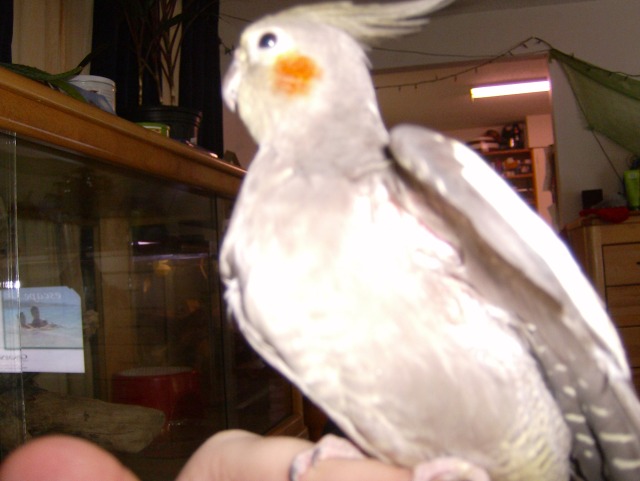 my cockitale mocha
QuestionQUESTION: I have a cokitale that will be 3 on A
my cockitale mocha
QuestionQUESTION: I have a cokitale that will be 3 on A
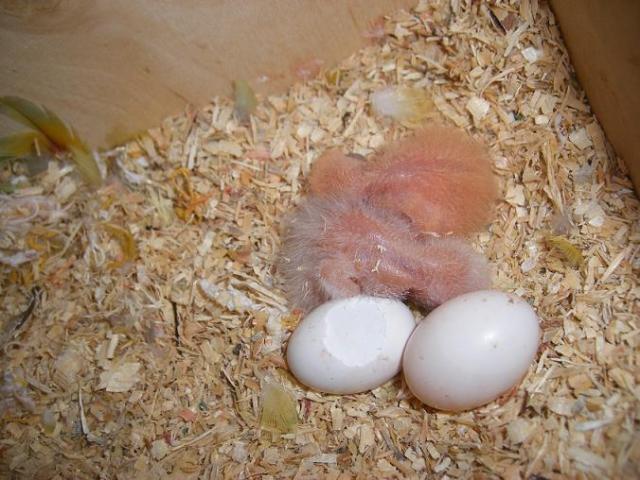 Eggs! :(
QuestionBroken Egg
QUESTION: I understand lovebi
Eggs! :(
QuestionBroken Egg
QUESTION: I understand lovebi
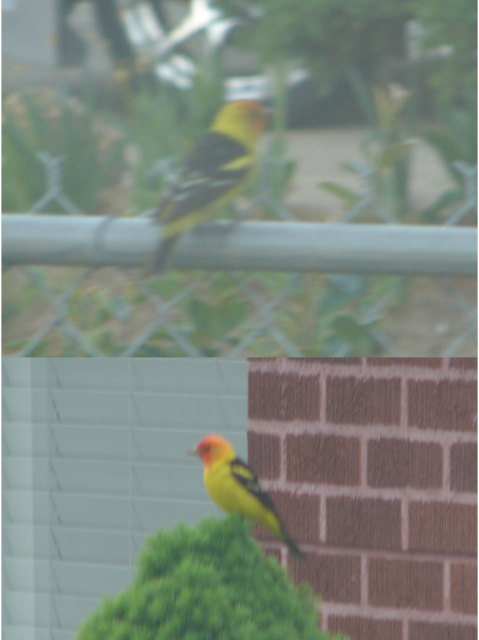 Wild or Domestic?
Question
Pretty Birds
There are these three birds in my
Wild or Domestic?
Question
Pretty Birds
There are these three birds in my
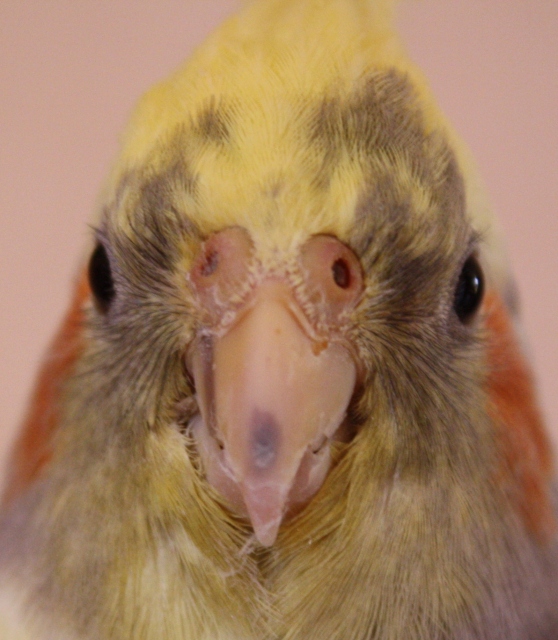 Bruise-like discoloration of beak (Cockatiel)
QuestionSasha
QUESTION: Our Cockatiel has develo
Bruise-like discoloration of beak (Cockatiel)
QuestionSasha
QUESTION: Our Cockatiel has develo